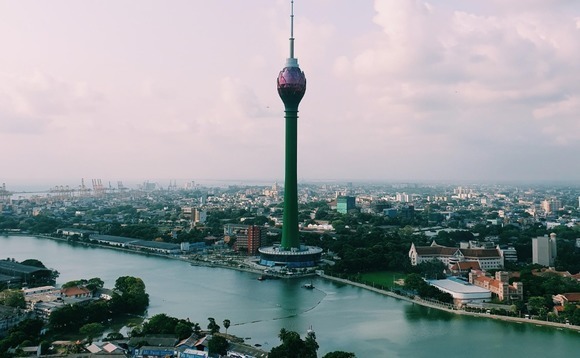
TPG exits Sri Lanka's Union Bank of Colombo

TPG Capital has agreed to exit Union Bank of Colombo (UBC), a Sri Lanka-based lender it has held since 2014, to a Singapore-registered company of unspecified ownership.
According to a regulatory filing, an entity controlled by the private equity firm's sixth pan-Asian fund – which closed on USD 3.3bn in 2014 – will sell its position in UBC to CG Capital Partners Global Pte. No details were given as to the size of the transaction.
TPG invested approximately USD 117m in the bank, acquiring a combination of primary and secondary shares representing a 70% interest, plus warrants that would take its stake to 75% if exercised within six years. As of December 2021, the private equity firm owned 70.84%. One of the goals of the investment was to strengthen UBC's tier-one capital.
It remains the largest-ever private equity buyout in Sri Lanka. A year later, TPG completed a second investment in the country under its growth strategy, picking up a minority interest in Asiri Hospital Holdings (AHH), Sri Lanka's largest private hospital group, from Actis for around USD 53m.
UBC was established in 1995 and listed on the Colombo Stock Exchange in 2011. Its market capitalisation is approximately LKR 8.78bn (USD 23.8m). The company's stock has fallen about 60% from the level it was at around the time of TPG's investment.
The bank, which focuses on lending to small and medium-sized enterprises (SMEs), has a network of 67 branches and 109 ATMs. It also holds majority interests in National Asset Management, an asset manager serving institutional and individual clients, and UB Finance, which specialises in vehicle loans, leasing, and hire purchases, as well as the provision of working capital finance.
Total assets amounted to LKR 118.4bn as of year-end 2021, a more than threefold increase from 2014. Gross income reached LKR 10.9bn, down from LKR 13.4bn in 2020, of which 83% came from interest income. Over the same period, net profit rose from LKR 576.5m to LKR 764.9m.
Sri Lanka is suffering its worst financial crisis since 1948, characterised by extreme inflation, near-depletion of foreign exchange reserves, a shortage of medical supplies, and rapid increases in the price of basic commodities. Anti-government protests earlier this year prompted the prime minister, Gotabaya Rajapaksa, to flee the country. He was replaced by Ranil Wickremesinghe.
The World Bank projects Sri Lanka's economy will contract by 9.2% this year and 4.2% in 2023. The government is currently working with the International Monetary Fund on a proposed USD 2.9bn bailout.
Latest News
Asian GPs slow implementation of ESG policies - survey
Asia-based private equity firms are assigning more dedicated resources to environment, social, and governance (ESG) programmes, but policy changes have slowed in the past 12 months, in part due to concerns raised internally and by LPs, according to a...
Singapore fintech start-up LXA gets $10m seed round
New Enterprise Associates (NEA) has led a USD 10m seed round for Singapore’s LXA, a financial technology start-up launched by a former Asia senior executive at The Blackstone Group.
India's InCred announces $60m round, claims unicorn status
Indian non-bank lender InCred Financial Services said it has received INR 5bn (USD 60m) at a valuation of at least USD 1bn from unnamed investors including “a global private equity fund.”
Insight leads $50m round for Australia's Roller
Insight Partners has led a USD 50m round for Australia’s Roller, a venue management software provider specializing in family fun parks.







